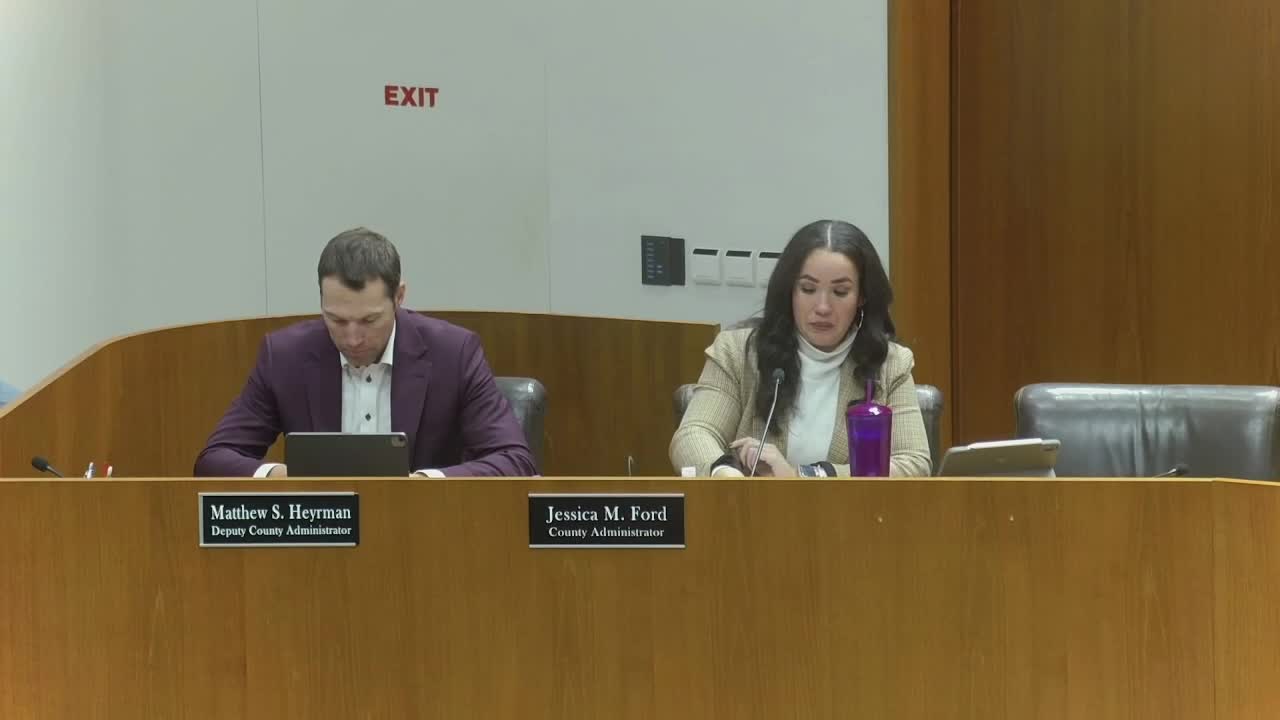Lucas County commissioners split on emergency food funding as SNAP distribution delays loom
Get AI-powered insights, summaries, and transcripts
Subscribe
Summary
Commissioners debated how to use county reserves to respond to delayed SNAP benefits caused by a federal shutdown. A motion to allocate $1 million failed; the board approved a $100,000 agreement split between Connecting Kids to Meals and the Islamic Food Bank to provide emergency food assistance while community partners coordinate a broader plan.
Commissioners of the Lucas County Board of Commissioners debated the county’s immediate financial response after federal SNAP benefit distributions slowed amid a federal government shutdown, ultimately approving a targeted $100,000 emergency agreement rather than a larger lump-sum allocation.
Commissioner Lopez urged an immediate, large injection of county funds, saying, “No child in 2025 should have to worry about where their next meal is going to come” and proposing $1,000,000 from county reserves to support local food providers while federal and state dollars are routed to the county. Lopez said many SNAP households include children and described the federal slowdown as forcing local action.
Commissioner Gerken opposed the $1 million allocation absent an operational plan, arguing that a large, unstructured disbursement would not be effective. “A million dollars without a plan doesn’t really solve the problem today,” Gerken said, urging a community-driven approach developed in the prior 10 days and endorsing a $100,000, plan-focused allocation split between Connecting Kids to Meals and the Islamic Food Bank.
On a roll call vote, the $1,000,000 motion moved by Commissioner Lopez failed (Lopez: yes; Gerken: no; Cebecchi: no). Later, Commissioner Cebecchi presented a resolution authorizing the county to enter agreements with Connecting Kids to Meals and the Islamic Food Bank for emergency food assistance totaling $100,000. The board approved that resolution; the clerk recorded affirmative votes on the motion and the county will execute the contracts.
County officials and commissioners emphasized that the federal government remains the primary funding source for SNAP and related benefits, and noted that local providers had already mobilized private resources. County staff said the goal of the approved $100,000 is to get funds to targeted programs and to complement ongoing community distribution efforts while larger federal and state payments are processed.
Next steps described at the meeting include executing agreements with the two named providers and returning to the board if additional funding is required as the situation develops. Commissioners said they would monitor distribution and remain prepared to consider further appropriations if community needs exceed the initial, targeted funding.
Votes and formal motions related to this item are recorded in the meeting record.
